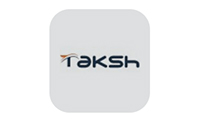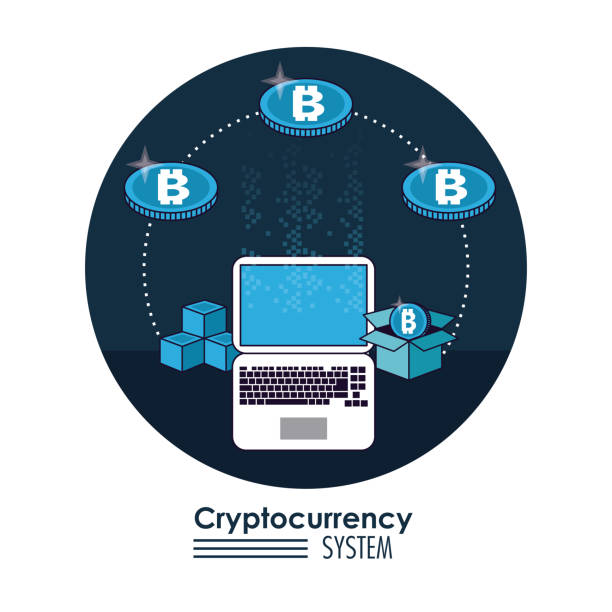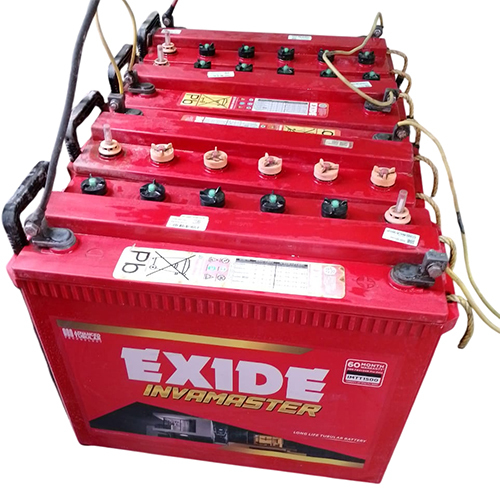SFT Development Cryptocurrency
Product Details:
SFT Development Cryptocurrency Price And Quantity
- 1 Number
- 600000.0 INR/Number
SFT Development Cryptocurrency Trade Information
- 765
- Paypal, Letter of Credit (L/C), Cash Against Delivery (CAD), Cash on Delivery (COD), Cash Advance (CA), Cash in Advance (CID), Cheque, Days after Acceptance (DA), Delivery Point (DP), Letter of Credit at Sight (Sight L/C), Telegraphic Transfer (T/T), Western Union
- 1 Number Per Year
- 7 Days
- Yes
- Free samples available with shipping and taxes paid by the buyer
- yes SFT (Security Token Offering) Development for Cryptocurrency Overview: A Security Token Offering (SFT) is a type of fundraising mechanism in the cryptocurrency space, where companies issue security tokens instead of utility tokens. These tokens represent a real-world asset, such as equity, bonds, or property, and they are compliant with regulatory standards. SFTs bridge the gap between traditional finance and blockchain technology by combining blockchain's transparency and security with the regulatory framework required for security offerings. Benefits of SFTs: Regulatory Compliance: Unlike traditional ICOs, SFTs are designed to comply with securities regulations, ensuring that issuers meet legal requirements. Asset-backed Tokens: Investors gain ownership of assets (equity, real estate, etc.), increasing the legitimacy of the offering. Increased Liquidity: Security tokens are easily tradable on blockchain-based exchanges, providing liquidity and access to global markets. Reduced Fraud: Blockchain ensures a high level of transparency and traceability, reducing the chances of fraud. Fractional Ownership: Investors can purchase fractional stakes in assets, making it easier for individuals to invest in traditionally illiquid or high-cost assets. SFT Development Process: Regulatory Consultation & Legal Framework: It's essential to understand the legalities in the jurisdiction you plan to issue tokens. Work with legal experts to ensure compliance with laws like the Securities Act or MiFID II. Choose whether your tokens will be classified as equity-based, debt-based, or asset-backed. Smart Contract Development: Develop smart contracts that govern the issuance, transfer, and ownership of the security tokens. Use popular blockchain platforms like Ethereum, Polkadot, or Binance Smart Chain to deploy the tokens. Token Issuance & Crowdsale: Implement a platform for investors to purchase tokens, providing a secure environment for transactions. Offer the tokens to investors through a regulated crowdfunding mechanism (e.g., private sale, public offering). KYC/AML Compliance: Ensure that every investor goes through Know-Your-Customer (KYC) and Anti-Money Laundering (AML) procedures, which are critical for complying with global regulatory standards. Secondary Market Listing: Once the SFT is issued, list the tokens on exchanges or a security token exchange platform where investors can trade them. Platforms like tZERO and Polymath specialize in offering secondary markets for security tokens. Post-Offer Compliance: Ensure continued compliance with regulations post-offering, including audit trails, reporting, and dividend distribution for equity tokens. Key Features of SFT Development: Token Issuance Platform: Secure, scalable infrastructure for issuing security tokens. Custom Smart Contracts: Tailored smart contract solutions that ensure transparent, efficient token transfers and compliance. Regulatory Integration: Ensuring full adherence to local and global regulatory standards for securities. Investor Dashboard: Providing users with easy-to-use dashboards to manage their token holdings and investments. Custodial Services: For large institutional investors, offering custodial services to secure tokens. Liquidity Solutions: Integration with secondary markets and exchanges to ensure liquidity. Why Choose SFT Development? SFT development offers a robust way for businesses to raise capital while offering investors a secure, regulated alternative to traditional investment vehicles. By leveraging blockchain technology, SFTs provide transparency, liquidity, and trust, which are increasingly sought after in the financial sector.
- South America, Eastern Europe, Western Europe, Middle East, Africa, Asia, Australia, Central America, North America
- All India
- SFT (Security Token Offering) Development for Cryptocurrency Overview: A Security Token Offering (SFT) is a type of fundraising mechanism in the cryptocurrency space, where companies issue security tokens instead of utility tokens. These tokens represent a real-world asset, such as equity, bonds, or property, and they are compliant with regulatory standards. SFTs bridge the gap between traditional finance and blockchain technology by combining blockchain's transparency and security with the regulatory framework required for security offerings. Benefits of SFTs: Regulatory Compliance: Unlike traditional ICOs, SFTs are designed to comply with securities regulations, ensuring that issuers meet legal requirements. Asset-backed Tokens: Investors gain ownership of assets (equity, real estate, etc.), increasing the legitimacy of the offering. Increased Liquidity: Security tokens are easily tradable on blockchain-based exchanges, providing liquidity and access to global markets. Reduced Fraud: Blockchain ensures a high level of transparency and traceability, reducing the chances of fraud. Fractional Ownership: Investors can purchase fractional stakes in assets, making it easier for individuals to invest in traditionally illiquid or high-cost assets. SFT Development Process: Regulatory Consultation & Legal Framework: It's essential to understand the legalities in the jurisdiction you plan to issue tokens. Work with legal experts to ensure compliance with laws like the Securities Act or MiFID II. Choose whether your tokens will be classified as equity-based, debt-based, or asset-backed. Smart Contract Development: Develop smart contracts that govern the issuance, transfer, and ownership of the security tokens. Use popular blockchain platforms like Ethereum, Polkadot, or Binance Smart Chain to deploy the tokens. Token Issuance & Crowdsale: Implement a platform for investors to purchase tokens, providing a secure environment for transactions. Offer the tokens to investors through a regulated crowdfunding mechanism (e.g., private sale, public offering). KYC/AML Compliance: Ensure that every investor goes through Know-Your-Customer (KYC) and Anti-Money Laundering (AML) procedures, which are critical for complying with global regulatory standards. Secondary Market Listing: Once the SFT is issued, list the tokens on exchanges or a security token exchange platform where investors can trade them. Platforms like tZERO and Polymath specialize in offering secondary markets for security tokens. Post-Offer Compliance: Ensure continued compliance with regulations post-offering, including audit trails, reporting, and dividend distribution for equity tokens. Key Features of SFT Development: Token Issuance Platform: Secure, scalable infrastructure for issuing security tokens. Custom Smart Contracts: Tailored smart contract solutions that ensure transparent, efficient token transfers and compliance. Regulatory Integration: Ensuring full adherence to local and global regulatory standards for securities. Investor Dashboard: Providing users with easy-to-use dashboards to manage their token holdings and investments. Custodial Services: For large institutional investors, offering custodial services to secure tokens. Liquidity Solutions: Integration with secondary markets and exchanges to ensure liquidity. Why Choose SFT Development? SFT development offers a robust way for businesses to raise capital while offering investors a secure, regulated alternative to traditional investment vehicles. By leveraging blockchain technology, SFTs provide transparency, liquidity, and trust, which are increasingly sought after in the financial sector.
Product Description
SFT (Security Token Offering) Development for Cryptocurrency
Overview:
A Security Token Offering (SFT) is a type of fundraising mechanism in the cryptocurrency space, where companies issue security tokens instead of utility tokens. These tokens represent a real-world asset, such as equity, bonds, or property, and they are compliant with regulatory standards. SFTs bridge the gap between traditional finance and blockchain technology by combining blockchain's transparency and security with the regulatory framework required for security offerings.
Benefits of SFTs:
-
Regulatory Compliance: Unlike traditional ICOs, SFTs are designed to comply with securities regulations, ensuring that issuers meet legal requirements.
-
Asset-backed Tokens: Investors gain ownership of assets (equity, real estate, etc.), increasing the legitimacy of the offering.
-
Increased Liquidity: Security tokens are easily tradable on blockchain-based exchanges, providing liquidity and access to global markets.
-
Reduced Fraud: Blockchain ensures a high level of transparency and traceability, reducing the chances of fraud.
-
Fractional Ownership: Investors can purchase fractional stakes in assets, making it easier for individuals to invest in traditionally illiquid or high-cost assets.
SFT Development Process:
-
Regulatory Consultation & Legal Framework:
-
It's essential to understand the legalities in the jurisdiction you plan to issue tokens. Work with legal experts to ensure compliance with laws like the Securities Act or MiFID II.
-
Choose whether your tokens will be classified as equity-based, debt-based, or asset-backed.
-
-
Smart Contract Development:
-
Develop smart contracts that govern the issuance, transfer, and ownership of the security tokens.
-
Use popular blockchain platforms like Ethereum, Polkadot, or Binance Smart Chain to deploy the tokens.
-
-
Token Issuance & Crowdsale:
-
Implement a platform for investors to purchase tokens, providing a secure environment for transactions.
-
Offer the tokens to investors through a regulated crowdfunding mechanism (e.g., private sale, public offering).
-
-
KYC/AML Compliance:
-
Ensure that every investor goes through Know-Your-Customer (KYC) and Anti-Money Laundering (AML) procedures, which are critical for complying with global regulatory standards.
-
-
Secondary Market Listing:
-
Once the SFT is issued, list the tokens on exchanges or a security token exchange platform where investors can trade them.
-
Platforms like tZERO and Polymath specialize in offering secondary markets for security tokens.
-
-
Post-Offer Compliance:
-
Ensure continued compliance with regulations post-offering, including audit trails, reporting, and dividend distribution for equity tokens.
-
Key Features of SFT Development:
-
Token Issuance Platform: Secure, scalable infrastructure for issuing security tokens.
-
Custom Smart Contracts: Tailored smart contract solutions that ensure transparent, efficient token transfers and compliance.
-
Regulatory Integration: Ensuring full adherence to local and global regulatory standards for securities.
-
Investor Dashboard: Providing users with easy-to-use dashboards to manage their token holdings and investments.
-
Custodial Services: For large institutional investors, offering custodial services to secure tokens.
-
Liquidity Solutions: Integration with secondary markets and exchanges to ensure liquidity.
Why Choose SFT Development?
SFT development offers a robust way for businesses to raise capital while offering investors a secure, regulated alternative to traditional investment vehicles. By leveraging blockchain technology, SFTs provide transparency, liquidity, and trust, which are increasingly sought after in the financial sector.

Price:
- 50
- 100
- 200
- 250
- 500
- 1000+







